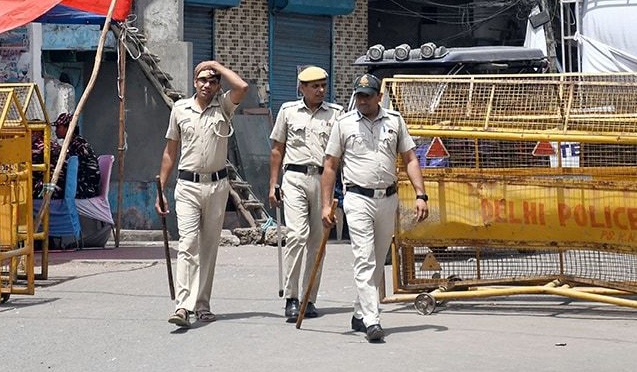Delhi Malaria Cases
New Delhi, August 10, 2025 — Delhi is grappling with a startling rise in malaria cases, reaching a 10-year high amid a spate of heavy rain spells in July. The city has witnessed an alarming surge in vector-borne diseases, prompting urgent action from authorities to contain the outbreak.

Alarming Numbers Amid Poor Drainage
Delhi has recorded 124 malaria cases between January and late July—already surpassing entire totals from several previous years and marking the highest tally in a decade.
In comparison, the city reported 106 cases during the same period in 2024, 33 in 2022, and just 20 in 2021.July’s relentless downpours, averaging 259 mm—well above the typical 209 mm for the month—led to widespread waterlogging. Wet surfaces and stagnant water in areas across Central, West, Civil Lines, Rohini, Shahdara, and South Delhi created ideal breeding ground for Anopheles mosquitoes, the primary malaria vector.Hindustan Times data show that Delhi logged 643 malaria cases by October 2024, the highest single-year count since 2014. That surge followed a monsoon season 61% wetter than average, generating nearly 1,030 mm of rain.
Broader Vector-Borne Disease Spike
Malaria is not the only mosquito-borne illness on the rise. As of late July 2025:
-
Dengue cases: 277, one of the highest in five years
-
Chikungunya cases: 18
A recent MCD report shows malaria and chikungunya cases together surged by 99% in 2024 compared to 2023, while dengue trailed behind.
Political Fallout and Infrastructure Failures
In response to the alarming figures, Delhi’s main opposition, the Aam Aadmi Party (AAP), launched a scathing critique of the BJP-run Municipal Corporation of Delhi (MCD), attributing the spike to mismanaged infrastructure and rampant waterlogging.
AAP leader Saurabh Bharadwaj said, “Malaria cases in Delhi have broken a 10-year record.”“The growing number of diseases is a result of seriously poorly maintained urban infrastructure.”
CM Orders Proactive Health Intervention
Chief Minister Rekha Gupta presided over a strategic meet focused on vector-borne disease control. She ordered public health teams to issue two warnings before issuing fines for mosquito-breeding sites, emphasizing preventive action over punishment.
Gupta also brought forward the fogging schedule, normally planned for September, to ensure proactive coverage. In an effort to eradicate mosquito larvae biologically, more than 5 lakh dwellings have been fogged, 71,086 mosquito larval sites have been cleaned, and 279 locations have been equipped with larvivorous fish.
Expert Warnings and Public Advisory
Max Healthcare’s Dr. Monica Mahajan, Director of Internal Medicine, warned of malaria’s dangers. Symptoms can range from high fever to severe toxicity and death if untreated.Particularly at risk are children, the elderly, and people with impaired immune systems.
She urged residents to:
-
Eliminate stagnant water in and around homes weekly
-
Use DEET-based repellents
-
Wear long sleeves during dusk and dawn
-
Seek testing for fever lasting over 48 hours during monsoon
Climate Link: Heavy Rains Fueling Disease Spread
The linking factor between climate and malaria trends is clear. Anopheles mosquitoes thrive in post-rain stagnations. The Anopheles culicifacies species—dominant in Delhi—has seen population shifts during monsoon months, intensifying transmission risk.
What Lies Ahead: Containment and Prevention
Delhi stands at a critical juncture. Public health experts insist that the city must:
-
Scale up fogging and anti-larval operations
-
Improve drainage systems in flood-prone zones
-
Expand community awareness campaigns across media
-
Keep hospitals ready with testing kits and antimalarial medications
The health infrastructure is under strain, especially at primary centers like Hindu Rao, Swami Dayanand, and Kasturba hospitals, which have put additional beds on alert to handle the expected influx.
Final Takeaway
Extreme rainfall in July revealed Delhi’s shortcomings in terms of sanitation and mosquito control. With malaria cases at a decade high—coupled with surges in dengue and chikungunya—the city’s fight against vector-borne diseases has entered a critical phase.
As Chief Minister Rekha Gupta pushes for more robust containment strategies, the stakes are clear: Without urgent, high-impact action, Delhi risks facing a full-blown epidemic by monsoon’s close.
Keep your homes clean, examine your surroundings, and act swiftly if symptoms arise—this monsoon, vigilance is everyone’s responsibility.
Source
For more news click here
Delhi Malaria Cases/Delhi Malaria Cases/Delhi Malaria Cases/Delhi Malaria Cases/Delhi Malaria Cases/Delhi Malaria Cases/Delhi Malaria Cases/Delhi Malaria Cases


